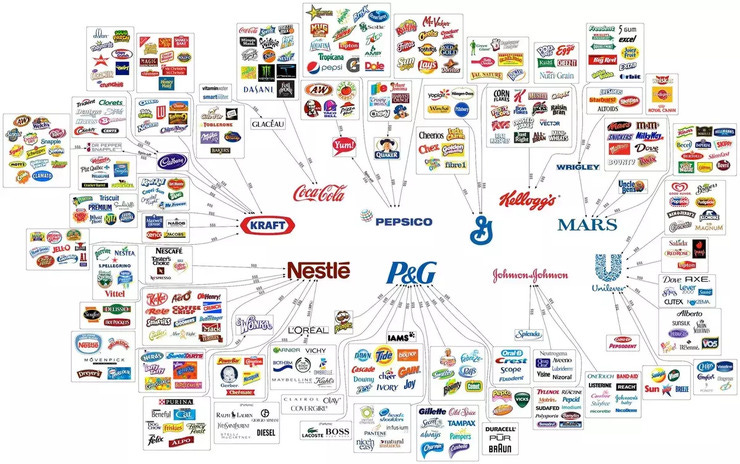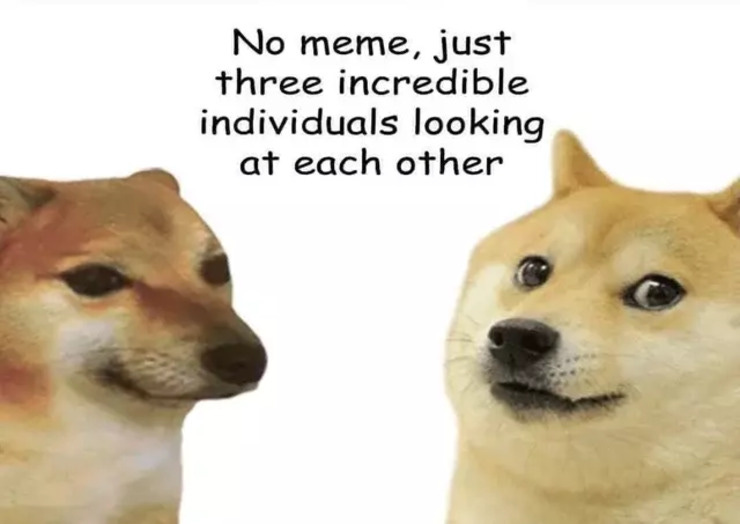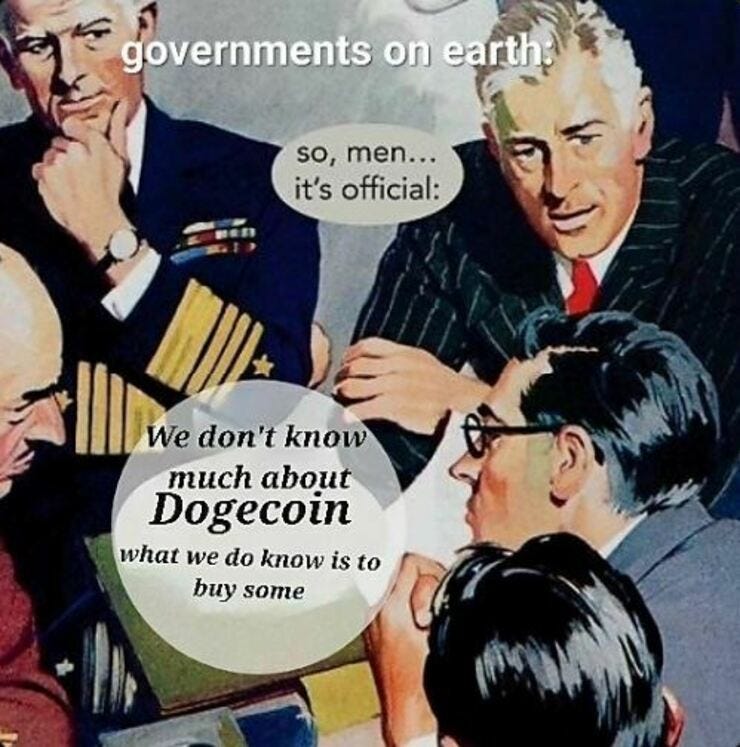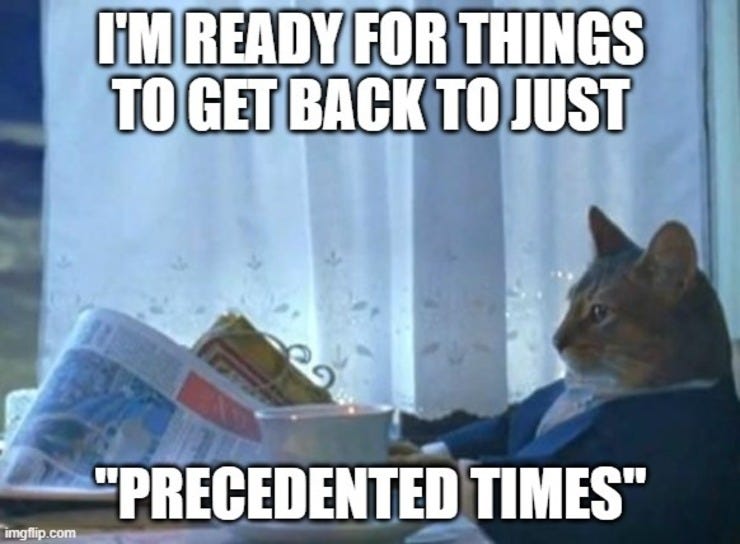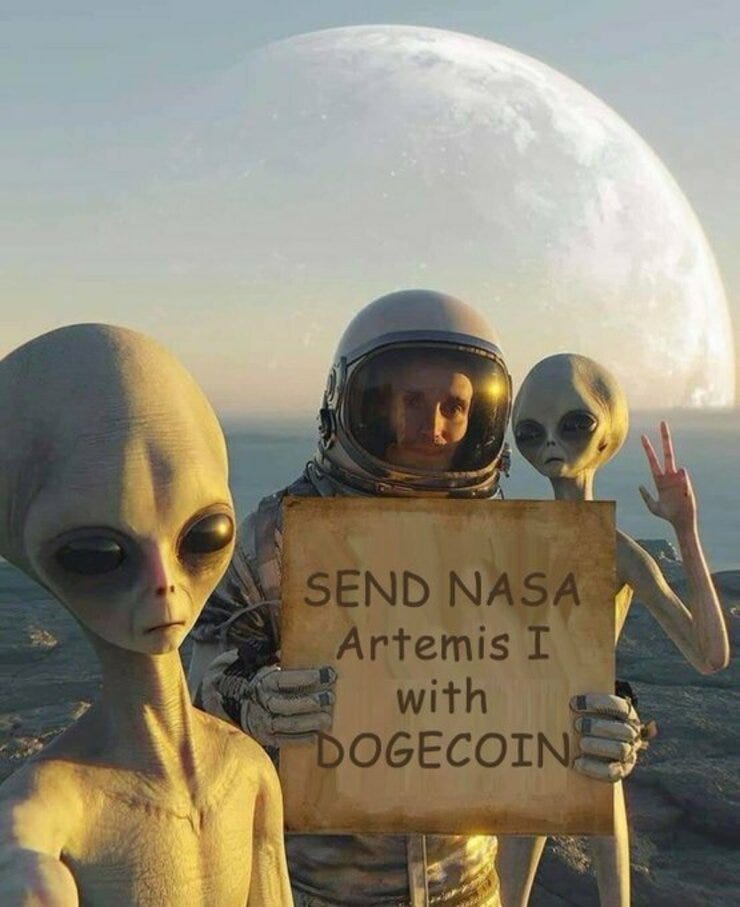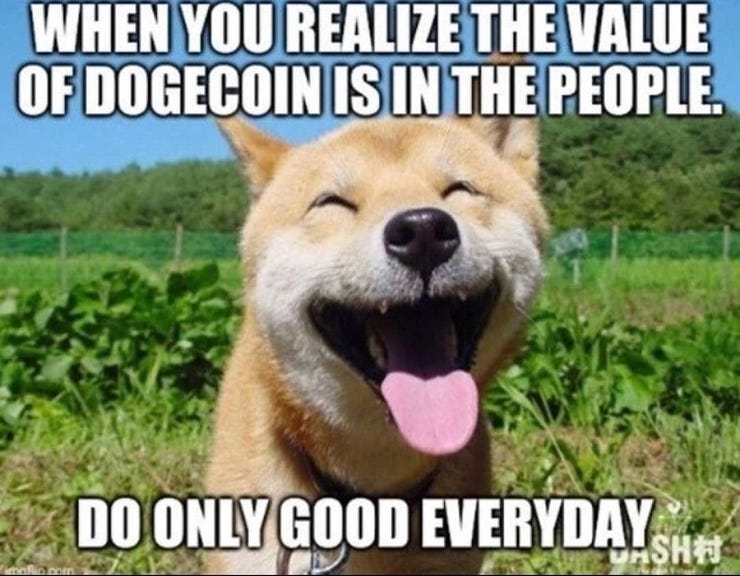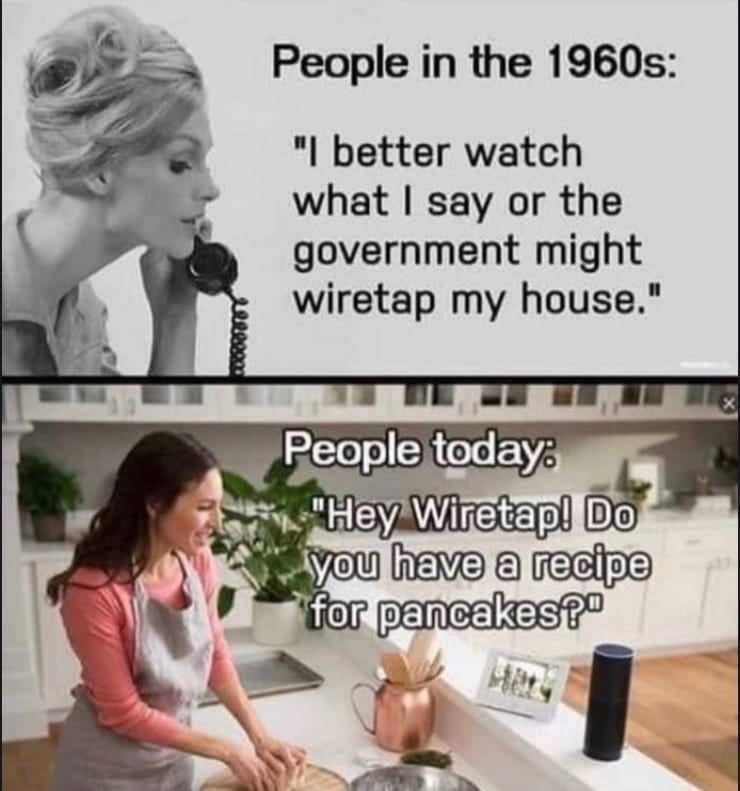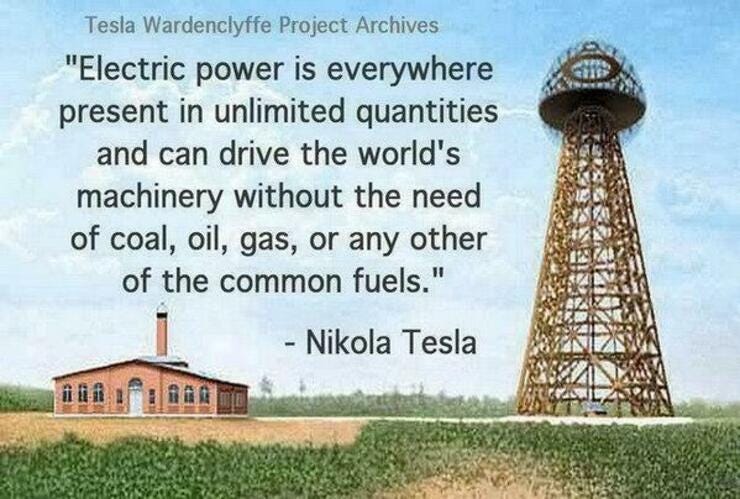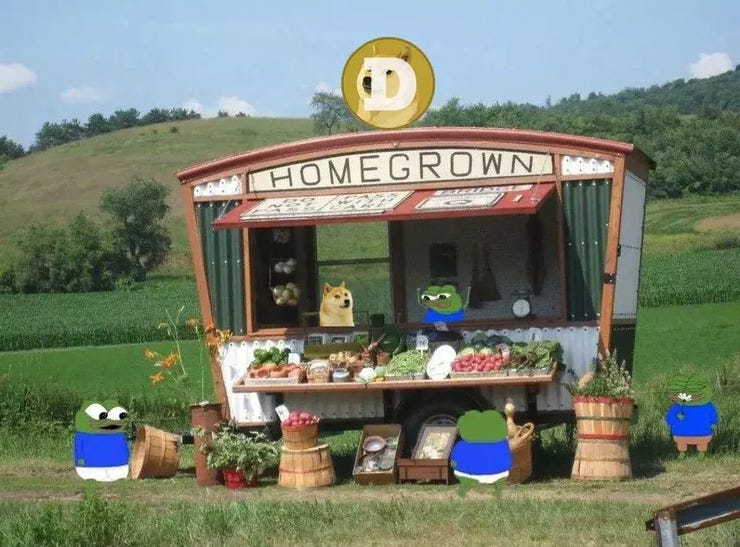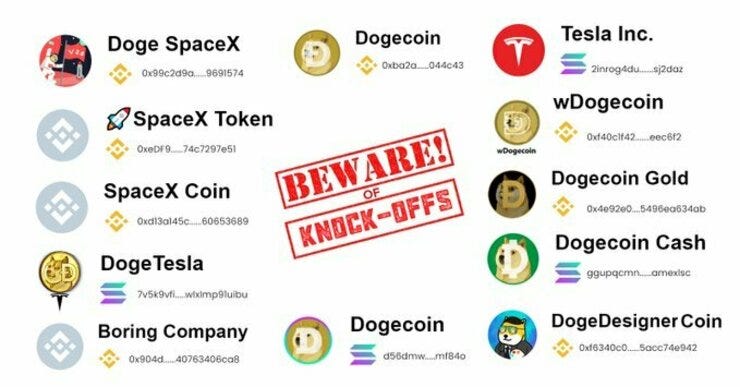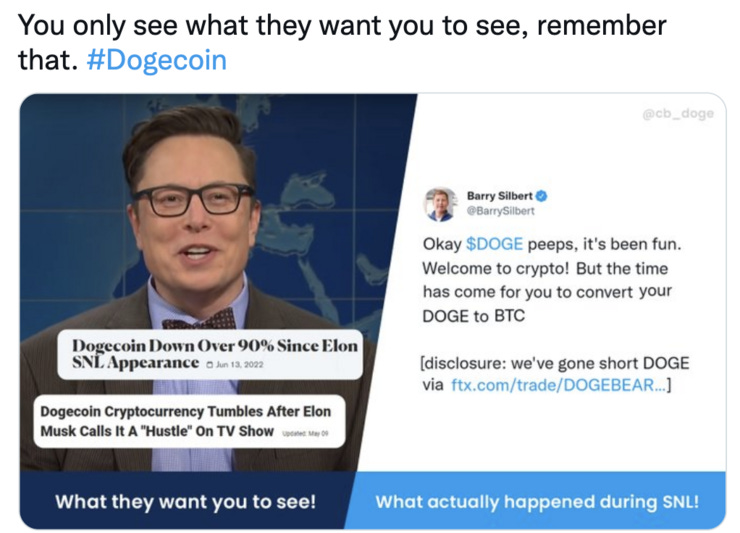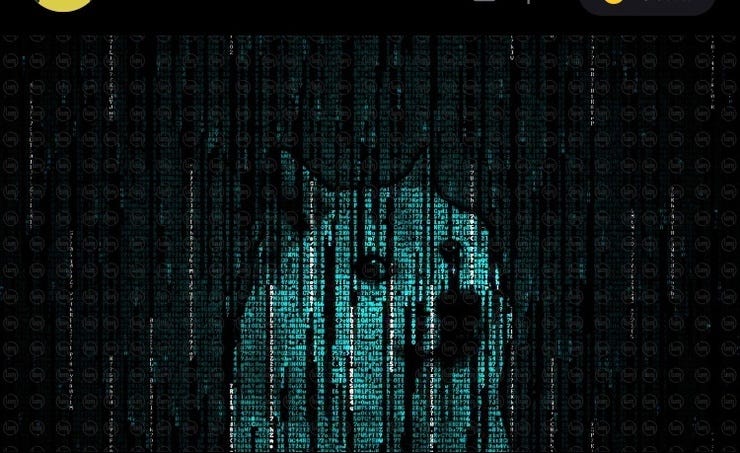The Future Is Decentralized
Hey everyone,
People use categories to get a handle on reality: Left vs Right. Mainstream vs Underground. Light vs Dark. And so on.
However, at some point in the last two years, a new dichotomy arrived, sweeping away all our old categories for understanding the world.
The defining rubric of our moment is undoubtedly Centralized vs Decentralized.
Lately, movements to decentralize are popping up everywhere, in energy and food, media and education, politics and money.
In the process, they’re replacing old institutions and changing everything we thought we knew about the future.
Let’s take a look at the big idea that’s transforming the world before our eyes.
Energy
Energy has become the year's defining issue.
Right now, the UK, Germany, California are all dealing with major power shortages.
The crises are a consequence of G7 nations' choice to wage economic warfare against Russia.
In the UK and Germany, companies are going out of business because they can't pay skyrocketing energy bills.
Meanwhile, California declared a grid emergency with the potential for rotating power outages, and urged consumers to cut their power usage.
Many of the folks on the receiving end of energy shortages want only to return to their normal lives.
The problem is that they're dependent on a centralized power grid, vulnerable to the whims of public officials and geopolitical entanglements.
To decentralize energy production, citizens would need the ability to generate and store power on their own.
Amazingly, the technology to do so is coming online at the very moment the public is experiencing the perils of centralized energy.
Tesla's solar roofs and Powerwall batteries allow people to form their own decentralized power grid, also known as a Virtual Power Plant.
With a VPP, the citizens, not the government or utility company, own the grid.
Tesla launched its California VPP last year. A few weeks ago, it had its first emergency response event, helping to support the state power grid during a period of high demand.
During these periods, individual households can sell their stored energy to the state grid, stabilizing power supply.
Powerwall owners make between $10 and $60 per event. They can choose to opt in or out of selling their energy with an app.
Last week, Elon called for more solar and batteries to meet peak demand.
Their arrival can't come fast enough. VPPs are the future and needed to be implemented yesterday.
Decentralization's main selling point is that it's more resilient because there's no single point of failure.
Where the old centralized grid dominated by large, single power plants, the new one is made up of thousands of autonomous nodes, each acting as their own mini-plant. No contribution is too small.
Redundancy is a key feature of decentralized systems: if one power supplier fails, another's ready to step in at a moment's notice.
Right now, the choice between centralized and decentralized energy is not an either/or proposition.
For the foreseeable future, decentralized power will serve as a backup to the main grid while it captures a growing share of the energy market.
Eventually, the balance will tip and the centralized grid will become the backup as individual citizens generate the majority of electricity on their own.
At a time when centralized energy systems are coming under enormous stress, it's a positive sign that power is literally being returned to the people.
Food
Food is another arena where the forces of centralization and decentralization are colliding.
The American food system has grown increasingly centralized over time.
Like with mass media, a small number of food companies control an overwhelming share of the food supply while hiding behind a facade of diversity.
The downsides of food centralization show up all over the place: factory farms, nation-state grain hoarding, concentration of farmland ownership among a handful of entities, GMOs, soil depletion, mono-crops, the absurdity of global food supply chains, and bizarre agendas to get people to eat fake meat and insects.
In a simplified food system that just involved farmers and hungry folks, it's hard to imagine all this stuff would be happening. Most of it is pushed on consumers by faceless corporations and unelected agenda-setters.
The main problem is that centralization leads to lower quality food.
To stay competitive in the global market, food producers are incentivized to employ a range of harmful chemicals that cut costs at the expense of consumer health.
Government agencies should be regulating chemical use, but they've been captured, and play dumb until irreparable harm has been done to the public.
A big part of the issue is that, in the centralized food system, producers and consumers don't interact in any meaningful way.
As a result, consumers have lost the opportunity for face-to-face accountability that once incentivized clean food supply.
In the economic equation of big food, the wellbeing of the consumer comes last. At this point, it's not a stretch to say our food has become badly compromised, or even poisoned.
Decentralization of the food supply has emerged as a countermovement to these decades-long trends.
A decentralized food grid would mean more backyard farms, local ranches, and farmers' markets, with lots of personal contact between producers and consumers.
One promising movement called the The Beef Initiative has found common cause with the Bitcoin community.
TBI models itself after Bitcoin's network structure as a web of like-minded ranches abiding by core principles of food integrity.
The structure allows ranchers autonomy to run their own operations, while guaranteeing consumers peace of mind that their beef hasn't been adulterated by corner-cutting middlemen.

The ultimate in food decentralization has always been backyard farming, which allows households to become autonomous economic units.
The best example of this practice in America were the Victory Gardens of past World Wars, which shored up the nation's food supply during uncertain times. However, the practice fell into disuse in the era of post-war abundance.
With our food supply compromised, it could be time to revive the old idea.
Tesla Bots would help: when they scale, it should become possible for every home to help feed their community using mainly robot labor.

Food is a matter of national security. Centralization poses big risks with questionable benefits.
The ideal is to create a healthy, economical, and redundant food supply, with no single point of failure.
The last several decades of centralized food are an aberration in human history that puts our wellbeing at the mercy of big corporations and other countries. The consequences are starting to stack up.
Fortunately, the movement to return to the old practices is already underway.
Money
The broad shift away from centralized systems starts and ends with money.
Almost 14 years ago, Bitcoin launched the monetary decentralization movement in the midst of one of the worst economic disasters ever.
The Great Recession was caused by extreme concentration of risk and capital among big-money entities. The effects of this disaster continue to shape our world today.
Despite the catastrophe of 2008, it's unclear that our economic leaders learned the lesson. In fact, there's plenty of evidence to suggest that the legacy financial world is once again vulnerable to massive risk due to the misbehavior of a few reckless actors.
When central banking was installed into our economy about a hundred years ago, it was engineered so that, when banks give out bad loans that posed systemic risk to the financial system, it would be citizens who ended up footing the bill.
Time and again, the system has functioned exactly as designed.
The scheme only works because financial power is concentrated among a small number of decision-making entities like the Federal Reserve, which can print new money with a few keystrokes, devaluing everyone else's wealth to save the banks.
Of course, it doesn't help that the media runs cover by selling the idea that Wall Street must be saved with public money to prevent an even worse crisis.
The beauty of decentralization is that it doesn't require broken systems to be reformed from the top down—good luck getting D.C. to regulate Wall Street!
Instead, it simply offers an alternative model where bad behavior is disincentivized at the level of computer code.
In the decentralized model—exemplified by Bitcoin and Dogecoin—no single entity possesses the power to alter the money supply.
Equal privileges for all participants are built into the protocols themselves, and always have been, endowing them with an impossible-to-fake purity.
As with food and energy, the goal of decentralized money isn't to replace the existing banks in one swoop, but effect a gradual migration from corrupted systems to ones with integrity.
Bitcoin and Dogecoin are exemplars of decentralized community: both rely on emergent strength generated from the small contributions of thousands of mostly anonymous individuals.
Michael Saylor famously described the Bitcoin network as a "swarm of cyber hornets," while Elon likened the Doge network to a sandstorm. Both metaphors convey the power of decentralization.
What began with Bitcoin ends with Doge, which fulfills Satoshi's vision of a decentralized peer-to-peer cash system.
Together, the two coins replace the savings (BTC) and checking/spending (Doge) functions of legacy banks.
Our experiment with centralized government money has lasted a little over 100 years, but, amazingly, its end is in sight.
Decentralized Memetics
It's easy to get caught up watching the death spiral of old institutions. More attention should be paid to the new systems replacing them.
For the most part, the new structures are more nimble, less corrupt, and designed to give regular folks greater control over their lives.
The decentralized revolution isn't limited to electricity, food, and money. Parallel movements are gaining steam in education (homeschooling), politics (localism), art (NFTs), and media (influencers).
There's something uniquely methodical about the way decentralized systems spread, akin to a revolution in consciousness happening one mind at a time.
It takes courage to go against the grain. Making the leap only happens when the individual has built up enough conviction to abandon mainstream modes of seeing and doing.
This is a memetic process. Where centralized systems use tightly controlled advertising campaigns to promote themselves, decentralized systems have a strong affinity for memes.
In their own way, memes are the logical antithesis of Madison Avenue ad campaigns, the latter crafted by committees of besuited men sitting around a high-rise conference table, the former the late-night riffs of anonymous internet users.

Decentralization is a powerful meme with geopolitical implications that are just beginning to unfold.
After three decades of post-Cold War slumber, this year, history has jolted to life, with G7 and BRICS coalitions vying for supremacy on the world stage.
Lately in this world-historical showdown, the West is getting its butt kicked, with Europe writhing in Putin's icy grip.
As the recent energy crises demonstrate, centralized systems make large populations vulnerable to malign outside forces. The consequences are profound and immediate.
The bloc that achieves long-term independence in energy, food, and information will ultimately have the upper hand. In other words, the winner will be whoever better harnesses the power of decentralization.
To make a comeback, the West will have to slough off decades of reliance on centralized structures and reinvent itself from the ground up.
Its biggest advantage may be its tradition of freedom, which goes hand-in-hand with the growing decentralization movement.
Tesla looks like it's playing a key role. Many of Tesla's innovations like VPPs and Optimus share the characteristic of empowering the individual to become more autonomous.
A free citizenry is a powerful citizenry, immune to the ploys of authoritarian powers at home and abroad.
Things may looks bleak now, but the battle has only begun, and something tells me Doge will play a bigger role than anyone expects.
Dogey Treats: News Bites
Digital Dollar: A Senior Advisor for Ripple said that CBDC partnerships will be announced in the coming weeks. Ripple is one of four companies participating in a sandbox program for the digital dollar. The Treasury Department is expected to advise the federal government to press forward with a digital dollar. Last year, Ripple CEO Brad Garlinghouse said he didn't think Doge was good for crypto.
Global Financial System: At the end of August, the Pope imposed an October 1st deadline for all Vatican-linked institutions to deposit their assets with the Vatican bank. Lenders to Chinese developer Evergrande filed to seize the real estate company's Hong Kong headquarters. Elon said that another big Federal Reserve rate hike "risks deflation." The Queen's role in the financial system was explored after her death, which set into motion a 17-day mourning process known as Operation London Bridge.
BRICS and G7: European energy companies are at risk of insolvency in the face of margin calls amounting to at least $1.5 trillion. The Biden Administration threatened to impose sanctions on nations buying Russian oil who ignore a proposed G7 price cap, a move that could impact US relations with China, India, and other countries. Vladimir Putin said of Russia, "We have not lost anything and will not lose anything" by launching its "special operation" in Ukraine, while Ukrainian forces reportedly recaptured territory from the Russian army. Ukraine President Vladimir Zelensky rang the opening bell for the stock market last week.
Energy: Elon said that, in the future, civilization would be powered by solar power and stationary batteries "as sure as day follows night" and predicted gasoline cars would go the way of steam engines. Tesla has reached a production capacity of 42 Megapacks and 6,500 Powerwall batteries per week.
Twitter: former Disney CEO Bob Iger said Disney concluded "a substantial portion" of Twitter users were "not real" when doing due diligence in 2016. Elon acknowledged the news. His legal team said Twitter's $7.75 million severance package with whistleblower Peiter "Mudge" Zatko violated the terms of Elon's acquisition and added it as further justification for cancelling the original deal.
Starlink: Starlink being used to provide Internet to public schools in Arizona, New Mexico, North Carolina, Ohio, South Carolina, Texas, and Virginia. Elon said SpaceX has had "promising conversations" with Apple about Starlink-to-iPhone cell service.
Meme Stocks: GameStop is partnering with crypto exchange FTX, whose CEO SBF tweeted, "we like the" in reference to the viral meme we like the stock. GameStop's Head of Blockchain stepped own.
Blockchain Voting: In August, Kenya certified its elections using blockchain technology. A Utah congressional candidate called for blockchain elections. This short video explains blockchain voting.
Dogecoin: In a White House report on crypto and climate, the word "Dogecoin" appeared 20 times. Here's a list of charities involved with Dogecoin.
Memes: Elon posted a meme about the Queen's age almost exactly one year before her death. Hours before her passing was announced, he retweeted and pinned another meme from 2021 with the text "Hey you ... Yeah you Queen ... You're gonna make it!" He's drawn attention for posting other memes involving the queen in the past.
Thank You!
Thanks for reading! Consider sending a tip or Super Following on Twitter to help keep the newsletter going!
DJ2zTEdHBD3guHLfVaNBaypr6bHFG5Nwfw
Memes of the Week
It's ALL Risky!
Thank you, kind reader, for reading and subscribing to this newsletter. I really appreciate it!
If you haven’t already, please sign up to this email newsletter for more weekly articles like this one. Also, please share it with a friend or on twitter if you enjoyed this article.
What do you think? How will decentralization change the world? Let me know!
Remember, Dogecoin is risky. But then again, it’s all risky!
Follow on twitter at @itsALLrisky
Send an email to itsALLrisky@gmail.com
Send a Doge tip: DJ2zTEdHBD3guHLfVaNBaypr6bHFG5Nwfw
This article was written in collaboration with @CryptoDogDivine, give them a follow!
Don't forget to subscribe to this newsletter!
Disclaimer: This is not financial advice and I am not a financial advisor. The article above references an opinion for entertainment purposes only and it is not investment advice. Always assume that the author of the article is actively trading and that the opinions expressed may be biased towards the author’s holdings. Do your own research and consult with a licensed financial adviser before making any investment decision. Do not treat any opinion expressed in this newsletter as a specific inducement to make a particular investment. Content, news, research, tools, and securities symbols are for educational and illustrative purposes only and do not imply a recommendation or solicitation to buy or sell a particular security or cryptocurrency or to engage in any particular investment strategy. The information provided is not warranted as to completeness or accuracy and is subject to change without notice. The projections or other information regarding the likelihood of various investment outcomes are hypothetical in nature, are not guaranteed for accuracy or completeness, do not reflect actual investment results and are not guarantees of future results. All investments involve risk, losses may exceed the principal invested, and the past performance of a security, industry, sector, market, cryptocurrency, or financial product does not guarantee future results or returns. Dogecoin is a speculative and highly volatile asset susceptible to pump-and-dump schemes.
At the time of publication, Dogecoin is around $0.06 per coin.






